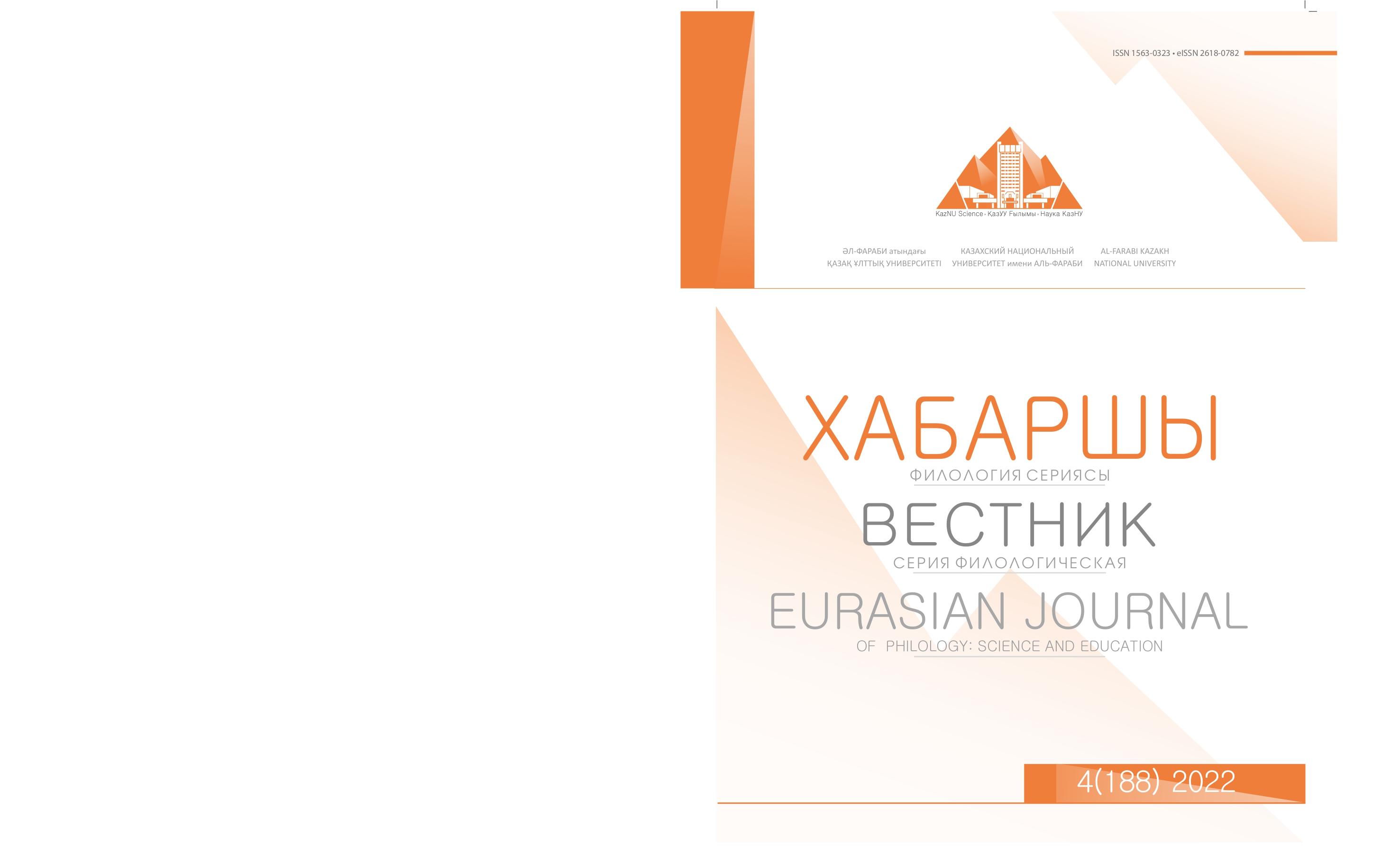The implementation of manipulative influence in indirect communication
DOI:
https://doi.org/10.26577/EJPh.2022.v188.i4.08Abstract
This article reveals the problem of indirect communication through the implementation of verbal manipulative influence in political discourse. Indirect communication can be classified as one of the most dynamic areas of modern linguistic research.
Increasingly, indirect ways of expressing communicative meanings are associated with the implementation of verbal manipulative influence.
Our understanding of verbal manipulation in political discourse comes from the understanding of language as a tool of thinking, a tool for obtaining knowledge about a person, culture and society, and discourse as a social practice, being determined by social structures, simultaneously creates and reproduces them.
The relevance of the topic of this article is due not only to the constant interest in political discourse both in the scientific community and in society as a whole, but also by a number of factors indicating the need to study this type of discourse as a kind of indirect communication in close connection with the discursive practices of verbal manipulation.
The verbal manipulation is considered in the article within the framework of pragmalinguistics as a psychological impact, as well as through the prism of cognitive linguistics. The article presents the results of the analysis of the pre-election and subsequent public speeches of D. Trump and H. Clinton in order to identify verbal manipulative influence, at the phonetic (acoustic analysis of sound and spectral analysis of tone, carried out using the PRAAT program), morphemic-morphological and lexical levels.
Key words: indirect communication, manipulation, verbal influence, discourse, political discourse.






